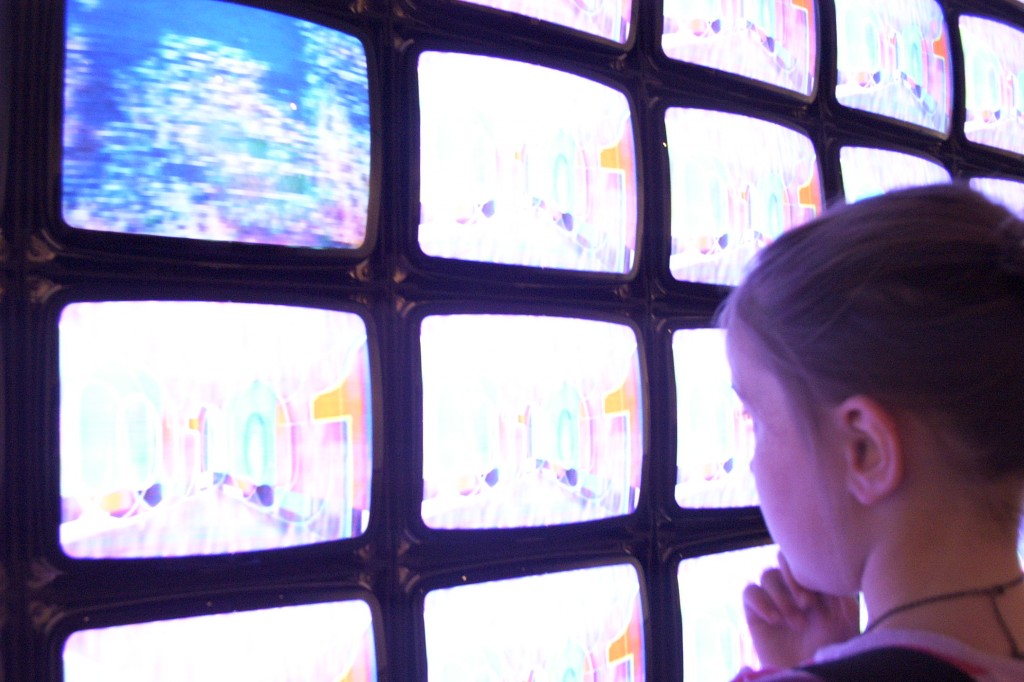
This post is a part of a four part series where we’ll hear directly from the parents in the community. Jen Arbo is a mother to a kindergartener and lives near Hume Park. She likes making jam and going camping with her family.
Last November there was a blog post that made the rounds on social media. It was called “Dear Mom on an iPhone” and was one blogger’s hypothetical conversation with a mother at the park, who was distracted by her phone as her kids asked for attention. I’ve been on both ends of that conversation before, both as the mom on the device and as the judging blogger. I’ve also been (and am!) the mom to a son obsessed with Angry Birds, Toca Lab, and Cut the Rope – all decent science-based games I let my son play – who asks constantly to use my iPad, to play Wii games, and to play on my phone in the car.
We are now being taught that electronics and device-based media are not just for entertainment – our adult worlds are becoming increasingly based online, whether it is for work or to access information such as passport applications, online banking, and other important personal business transactions. As a self-employed consultant, I spend a huge number of hours communicating with clients, working on their projects, and conducting the business of running a business – like invoicing – online. My child witnesses me online for hours in a day, so it is no wonder he thinks being in front of a screen is the norm. The American Academy of Pediatrics have media use guidelines that suggest:
- zero screen time for children under the age of 2
- Assessing what your toddler or child asks to watch to ensure it is age appropriate
- Watching or playing with your child as an opportunity to spark conversation or learn together
So what do I do to balance screens and media with entertainment, learning, and digital literacy? I use the technology my devices offer me to remember to unplug and play. I know that seems silly, but hear me out.
Set timers
I use the timer on my phone to allocate earned time on devices for my son, but also to tell me when it is time to shut down my computer to go play Lego with him. A timer is a non-personal way of learning when it is time to stop something, and so my son tends to not get angry when it goes off. It’s not me telling him to stop, his time is simply up.
Schedule play
I live by my calendar in my phone. I use it to schedule both client meetings and also important family activities, including blocking off time to goof off together, such as playing at the playground, going for a hike together, or just puttering around in the yard. It seems silly setting an “appointment” for “playground romp” and sending an invite electronically to my husband to join us, but if it is in my schedule, it happens. (And, yes, I schedule date nights the same way too!)
Out of sight, out of mind
Another way we limit the exposure to a constant barrage of media is to use a paid service like Netflix rather than regular TV – it shuts off when the show is done, and there are no commercials. You could also set a digital recorder to record to watch later, when it is a better time to do so. We moved our TV downstairs and it gets watched significantly less now – it’s not staring us in the face every time we walk from one end of the house to the other. By putting your devices away and only pulling them out when it is the special allotted time to use them, you’re less likely to feel their pull. You can accomplish this by buying a media centre with doors, or by leaving your phone in your pocket rather than putting it on the table. Also: not every room needs a TV, especially a child’s room.
Devices aren’t babysitters
This one is the hardest! I try hard to avoid using the devices just to distract my son so I can get other things done. Rather, the time on a device is earned in increments so that he understands the time watching a show or playing his favourite game is a finite, precious thing and can appreciate the specialness of the time he does get. Rather than blindly watching TV, I encourage him to watch an episode of his favourite show because he enjoys it, and when the increment is up, the device goes off and there are other just-as-fun things to do.